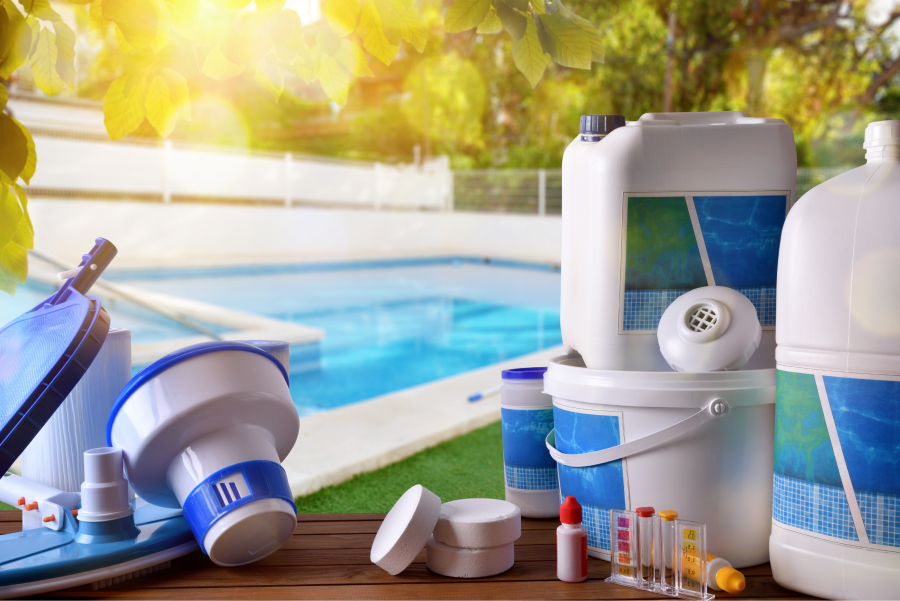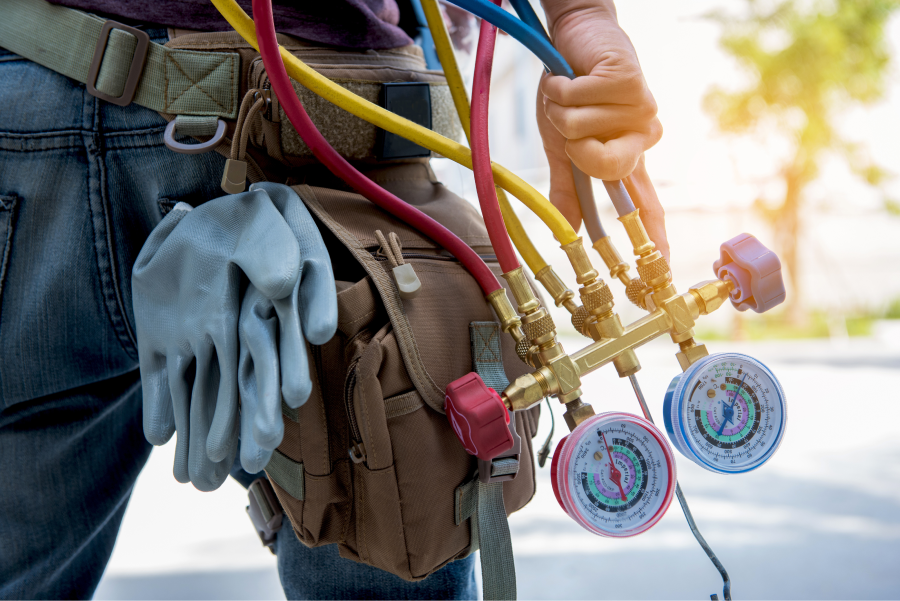Climbing the Maintenance Career Ladder

Elevate your maintenance technicians with training and certifications.
Multifamily property management is no small feat. It requires diligence, technical expertise, and a commitment to maintaining safe, comfortable living environments for all tenants.
The complexity and significance of multifamily maintenance underscore the imperative need for training that validates the skills of technicians and maintenance professionals.
Let’s explore the most pivotal maintenance certifications and courses to understand how they lay the foundation of a rewarding and sustainable career in multifamily property maintenance.
#1: Certificate for Apartment Maintenance Technicians (CAMT)
The first step in becoming a maintenance expert:
The CAMT, facilitated by the National Apartment Association Education Institute, is a distinguished certification that creates expertise for maintenance technicians in multifamily properties. According to the NAA website:
Earning your Certificate for Apartment Maintenance Technicians (CAMT) validates your knowledge, enhances your reputation and credibility, boosts your confidence, and earns you respect.
The Path: This certification requires one year of practical experience in multifamily housing maintenance. Rigorous coursework and an examination follow the year of experience to prove the technician's mastery.
Why being a CAMT helps:
- Augmenting skills: Technicians acquire hands-on skills across various domains, including painting, appliance, electrical, plumbing, and HVAC services (and much more!). These skills ensure the optimal functionality of multifamily properties.
- Climbing the career ladder: Further, technicians will scale new heights in their maintenance careers as the CAMT boosts their professional profiles and makes them valuable assets to potential employers.
Find more information about this program on the National Apartment Association Education Institute website.

#2:Certified Pool Operator (CPO)
Dive into proficient pool management:
Offering amenities is a critical part of attracting and keeping residents. One of the most popular amenities is a swimming pool.
Maintenance technicians working on a property with a swimming pool need the CPO certification offered by the National Swimming Pool Foundation. This knowledge is crucial to mastering the nuances of swimming pool and spa maintenance.
The Path: Technicians engage in detailed coursework encompassing diverse aspects of pool management and then take an exam to validate their newfound expertise.
Why being a CPO helps:
- Enhancing compliance: This certificate will enable technicians to manage swimming pools with strict adherence to state and local regulations.
- Prioritizing safety: The knowledge gained equips technicians to prioritize and ensure the safety of all pool users, enhancing the attractiveness of this amenity to residents and reducing liability for the property.
Find more information about this program on the National Swimming Pool Foundation website.

#3: Environmental Protection Agency (EPA) Section 608 Technician Certification
Learn how to safeguard our planet:
The EPA 608 Technician Certification is essential for all technicians who deal with potentially ozone-depleting refrigerants. According to the EPA website:
EPA regulations under Section 608 of the Clean Air Act require that technicians who maintain, service, repair, or dispose of equipment that could release refrigerants into the atmosphere must be certified.
The EPA offers four types of certification:
- Type I: servicing small appliances
- Type II: servicing or disposing of high-pressure appliances
- Type III: servicing or disposing of low-pressure appliances
- Universal: servicing all types of equipment
The Path: Technicians intensively study regulations and refrigerant management. The course culminates in an examination that will pronounce the technician proficient in environmentally friendly management of refrigerators, freezers, and air conditioning units.
Why EPA certification helps:
- Mitigating legal repercussions: This certification is a legal requirement for handling refrigerants. It helps safeguard properties against potential legal repercussions.
- Building eco-friendly operations: Certified technicians can advocate for ecology, ensuring maintenance operations minimize their environmental footprint.
Find more information about this program on the U.S. Environmental Protection Agency website.

#4: Occupational Safety and Health Administration (OSHA)
Building a haven:
Technically, this isn't a certificate. After taking an OSHA course, the technician earns an OSHA 10 card from the U.S. Department of Labor (DOL).
This course is part of what OSHA calls its Outreach Training Program. OSHA says this training is voluntary, but properties looking for maintenance technicians might require a DOL card.
The OSHA 10 card is a testament to the technician's commitment to safety standards and a healthy working environment.
The Path: The training is 100% online. It focuses on identifying, avoiding, controlling, and preventing hazards. After passing the course, a technician will receive a DOL card in the mail.
Why OSHA training helps:
- Creating an impeccable safety record: Ensure that your workspaces are exemplary in safety, thereby reducing accident-related liabilities and ensuring the well-being of your team.
- Increasing tenant confidence: Reassure residents with a maintenance team that adheres to stringent safety protocols, further cementing their trust and satisfaction.
Find more information about this program on the OSHA Education Center website.
Maintenance Building Blocks
Taking these courses is more than a career move. It’s a pledge to embody expertise, safety, and sustainable practices in multifamily maintenance. The knowledge acquired ensures that the properties under the care of these learned technicians will stand as pillars of reliability and excellence.
As the need for qualified maintenance professionals continues to surge, these courses and certifications uplift a technician's career trajectory, enriching the lives of countless residents who live where that technician works.
In every course and with every certification, a technician will discover new horizons of knowledge, skills, and professional ethos—ultimately becoming the backbone of stellar multifamily property operations.
Disclaimer: Regularly check the official websites for the most accurate and recent information about certification pathways and requirements. For exact details on certification, please consult the official websites or authorized certification providers. This article is for informational purposes.
